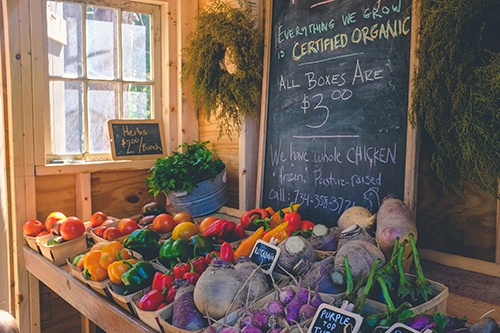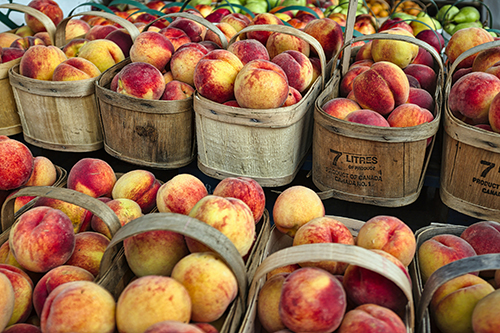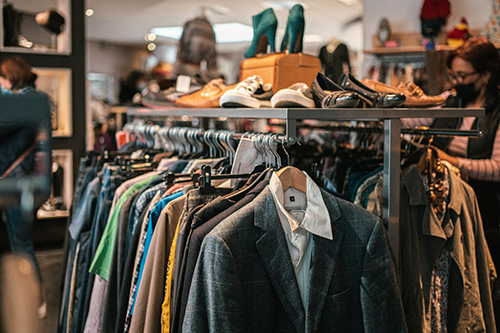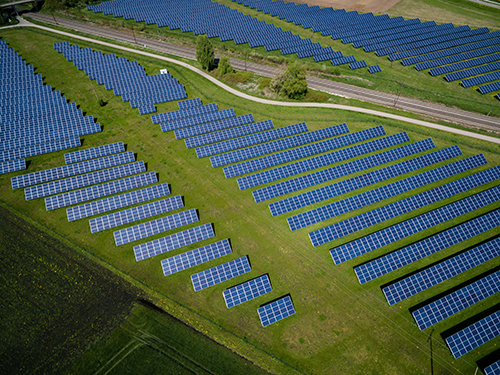Photography by Omkar Jadhav
Start small, think big!
Living sustainably means making choices that reduce our impact on the environment. Try these everyday practices this winter and help make the world a better place, no matter your budget.
Shop Local
Support your local food suppliers and in turn lower your carbon footprint. Shopping locally is beneficial for the environment as it reduces transportation emissions, supports sustainable farming practices, and minimises waste and packaging. Local products travel shorter distances, lowering carbon footprints from fuel consumption and reducing greenhouse gas emissions. In Canberra, the Capital Region Farmers Market at Exhibition Park, the Belconnen Fresh Food Markets, and the Fyshwick Markets are great places to start. At the South Coast, Moruya’s awardwinning Sage Farmers Market is the top spot for locally grown and harvested food from the region’s farmers and producers.

Photography by Kenny Eliason
Reduce Heat Loss
Consider the heat lost in your home (owned or rented) you can lose up to 35% of the heat in your home through the roof, 20% through walls and up to 20% through the floor. Inadequate insulation can mean that in winter, warm air escapes and cold air comes in. This leads to heating systems working overtime to regulate your home’s temperature, resulting in unnecessarily high energy bills and a detrimental impact on the environment. The same thinking applies to doors and windows – they should be well-sealed around the frames and edges. Gaps and cracks around windows can be easily addressed with sealant, and escaping air around door frames can be fixed with weather strips and tubular draught blockers. If you have old windows, consider speaking to a professional about your options for replacement or even invest in double-glazed glass. If this is out of your budget, consider thicker curtains and window blinds. You might also want to check your flooring, as even the smallest gaps can leak warm air.

Photography by Eric Prouzet
"Opt for electricals with a high energy efficiency rating –the more stars on the product, the better."
Say No To Plastic
Australia continues to be one of the biggest consumers of single-use plastic per person in the world. In reality, most plastic items take hundreds, if not thousands, of years to biodegrade, causing irreparable damage to land, oceans and wildlife. Consider redusing your plastic use this winter, use and avoid single-use plastics such as bags, straws, plates, cups, bottles, cling wrap, razors and toothbrushes. Where possible, avoid microplastics in your daily routine and instead, adopt eco-friendly skincare, beauty and laundry products. Likewise, look to support refillable services for everyday products like shampoo, cleaning supplies, and cosmetics. These programs often provide discounts, making them a win for both your wallet and the environment.

Photography by Hugo Demant
REUSE, REPAIR AND RECYCLE
Unfortunately, the world’s love of fast fashion and cheap manufacturing comes at the cost of the planet. If we want to be conscious consumers, we need to get more life out of our possessions and make smarter choices at the shop register. Before you go and buy new clothes, give more consideration to second-hand or vintage items, or pieces made from natural fibres. Consider renting your outfit from online retailers or borrow items from friends. If you can, repair clothes and always donate your old wares to charity or sell them online to keep the cycle going. For broken household appliances, check if they are still under warranty, covered by your contents insurance, or try to prolong their life by getting items repaired before throwing them away. Some charities, private recyclers and retailers will repair and recycle your items or sell them for parts, so search online for services in your local area.

Photography by Nick Page
Save Energy
Switching off appliances at the wall when they’re not in use is one of the easiest ways to be sustainable with your energy. Opt for electricals with a high energy efficiency rating – the more stars on the product, the better. For lighting, consider energy-efficient bulbs such as LED and CFL. For washing machines, go for a cold cycle as it uses less energy and limit using the clothes dryer where possible.

Photography by Andreas Gucklhorn
Enjoy this complimentary magazine and feel inspired to discover endless possibilities for enhancing your life.
To read the e-brochure, click here.





